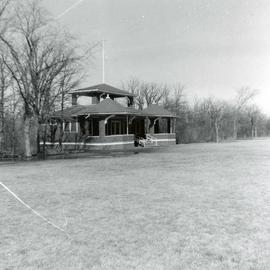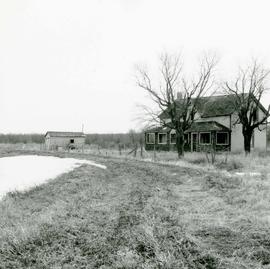Responsibilities inherited by Metro were undertaken by six divisions under the supervision of the Executive Director of the Corporation. Metro’s Assessment Division was responsible for the preparation and delivery of annual realty, property and business assessment rolls, the re-assessment of properties, the processing of appeals to the Metropolitan Board of Revision and the Municipal Board, as well as all functions previously administered by municipal assessment personnel such as the preparation of annual voter lists, vacancy surveys, property appraisals and population analysis and distribution. The Finance Division oversaw the development of financial plans and objectives, which included maintaining Metro’s account books, issuing financial reports, supervising transactions, and preparing budgets. The Parks and Protection Division inherited functions related to parks (including riverbanks, boulevards and care of trees), the zoo, municipal golf courses, mosquito abatement, and civil defence. The Division further increased park land in the Greater Winnipeg area by 1,000 acres. The Planning Division developed, executed and enforced the Development Plan, and other By-laws and regulations related to zoning, subdivisions, building, electrical and plumbing by-laws. The Streets and Transit Division inherited transit functions from the Greater Winnipeg Transit Commission and was further responsible for the street system, arterial traffic control and bridges. With the assistance of this Division, Metro fulfilled its commitment to build three new bridges in Winnipeg: the St. James Bridge and Underpass, St. Vital Bridge, and Maryland Twin Bridge. Finally, the Waterworks and Waste Disposal Division inherited responsibility for the supply, treatment, storage and distribution of water to area municipalities, which included the maintenance and construction of pumping stations, treatment plants and lagoons.
Series consists of records produced by the divisions, directed to and collected by the Metro Executive Director and/or Chairman of Council. Records include inter-office memos, correspondence, reports, divisional directors’ files, plans, promotional material, financial records, operating and capital budgets, presentations, statistics, news releases, transcripts, surveys, studies and investigations.
Series documents the planning, research, organization and execution of Metro projects and events, administration, the organization and roles of the divisions, communications between the divisions and the Executive Director, as well as Metro’s relationship with municipal and provincial officials, and citizens of the Greater Winnipeg area.
The records were filed in the offices of the Executive Director and Chairman in reverse-chronological order according to the division to which they related. They were subsequently compiled into general divisional folders, or in thematic folders categorized by major projects or functions of each division. The arrangement of the series reflects this original order.






